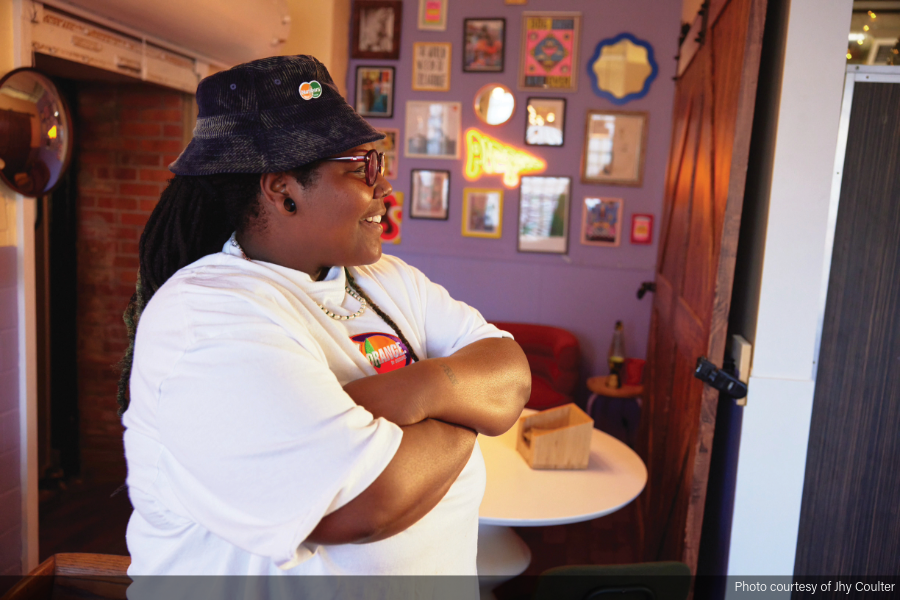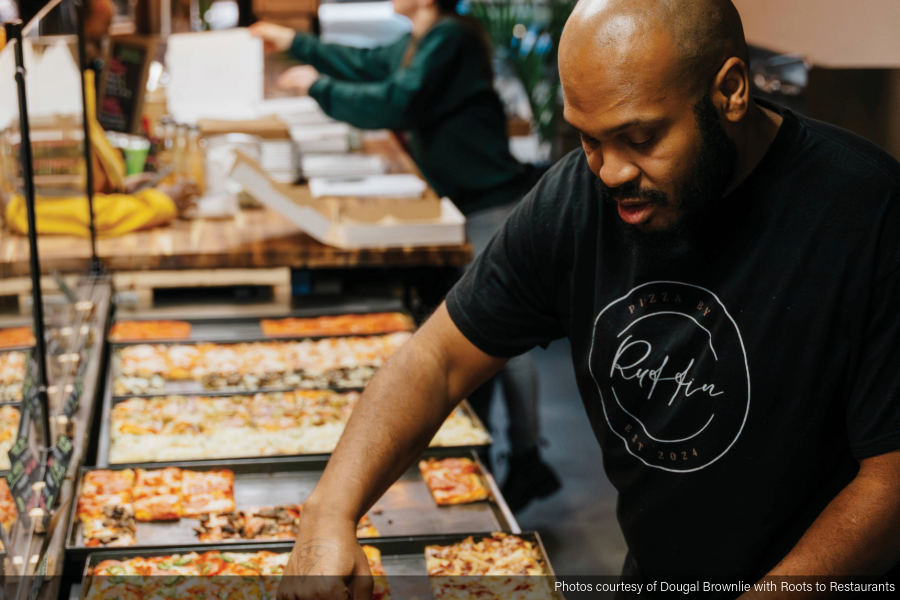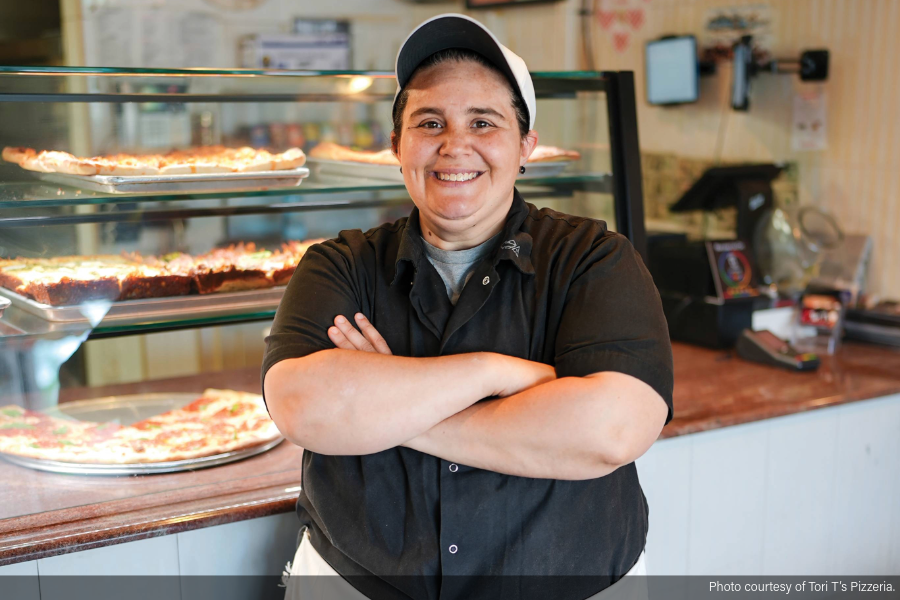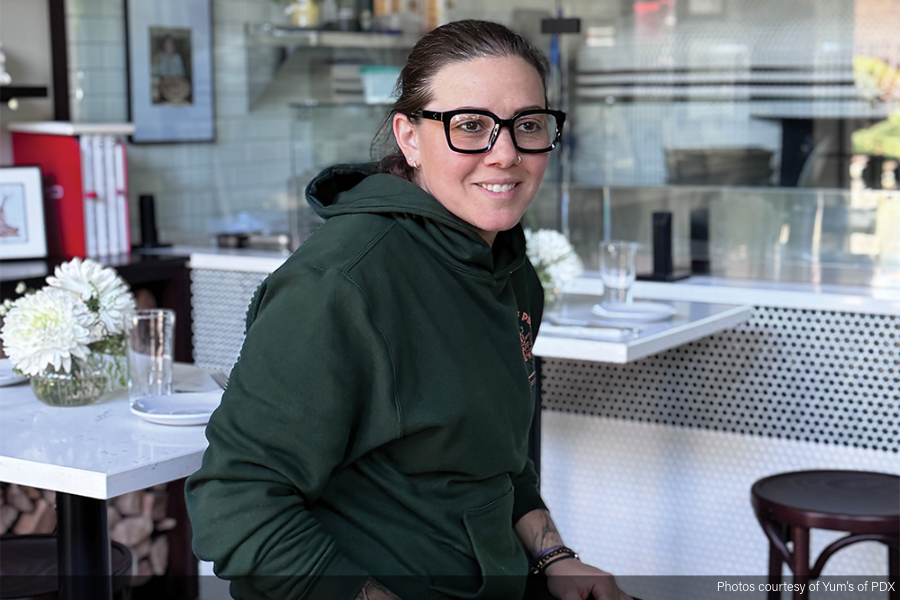Is an independent or franchise operation right for you?
You’re an entrepreneur, one who starts a business and is willing to take considerable initiative and risk in order to make money. Entering into the restaurant business is certainly a gamble –– 80 percent fail within the first five years. How can we lessen our risk? Gone are the days when a business could get by with Grandma’s secret recipes. Today the competition is fierce, pizzerias abound and everyone claims they’re the best. True entrepreneurs look at a pizzeria as an opportunity to turn his passion for pizza into profits and quality of life.
Perhaps one of the most critical choices is whether to open as an independent pizzeria or as a franchise. There are no guarantees of success. The entrepreneur must be willing to take a risk. Many matters must be deliberated and matched to your skills, personality traits, budget constraints and risk tolerance to yield the greatest likelihood for success.
Eric Stites, CEO of Franchise Business Review, shares this: “It really boils down to where your passions lie. Are you passionate about developing new food products/recipes, or using your creative skills to develop interesting marketing programs? If so, the independent route is probably best.”
Aspiring pizzeria owners must apply painstaking research into the industry and take an honest self-examination. This is recognized as “due diligence,” the careful research and analysis that a reasonable person exercises to avoid harm to other persons or their property. Zig Ziglar put it best when he said, “The real opportunity for success lies within the person and not in the job.”
The Law Office of Claire Johnson Saénz, LLC, provides services to independent and franchised businesses. Saénz advises independents to first consider the market including your customers and competitors. “Do a business plan before anything else (and) then consider the legal form of ownership for your new business,” she recommends. “Sole proprietorships and general partnerships are common but afford no liability protection for the owners. Corporations and limited liability companies (LLCs) do offer limited liability protection, meaning that your liability is limited to the assets of the business — your personal assets are protected.
“This protection is an extremely important factor, particularly given the high failure rate of new restaurants. Consider the name of the business. If you are doing business using a name other than your own (i.e., a ‘d/b/a’) it is necessary to file a fictitious name registration with the state. Finally, consider your obligations as an employer, including employee safety, payroll, payroll taxes, worker’s compensation and unemployment insurance.”
Stites acknowledges: “If you have a strong food background and strong business/management skills, you may be able to build a solid independent brand at the local/regional level… but it’s obviously a lot of hard work, and the deck is stacked against you.”
Adam Matt, owner of Slice of the 80’s pizzeria in Detroit, started in the pizza industry at age of 19 delivering pizzas. “I then worked inside learning about customer service, business and pizza in general,” Matt says. “I knew I found the passion I loved.”
Matt first started looking into franchises because the groundwork was already there. “I figured it would be easy to do, but the problem was franchising was very expensive, especially to a 24 year old,” he says. “Plus, you are investing in someone else’s idea. I already had a concept that I believed in, whether it failed or succeeded I wanted to try it, something franchising doesn’t allow you to do. This was a giant con for me.”
What did it take for Matt to be successful? “It takes an upbeat attitude, someone who is good at dealing with people, who listens, and who doesn’t mind working hard,” he says. “You must have a drive to succeed and a passion for pizza. There are no short cuts. Bad times and unpredictable times come more than you expect. Have a strong backbone and be able to lead and delegate to turn your staff into a winning team. It is one of the most challenging and rewarding things you can do in life.”
Matt’s “due diligence” taught him success doesn’t happen overnight. He saw the need to learn much from people in the industry, ask questions, research on what has worked for operators in the past and what has failed to avoid making similar mistakes. “Before taking that leap, get to know vendors and pricing (food cost, equipment),” he says. “Have a game plan and make certain this is something you desire. It is a very competitive industry.”
While franchisees have the backing of their brand, Saénez says each unit takes into consideration separate factors.
“As a franchised unit, you have the benefit of support in working out some of the above issues, but you must make sure you do your own due diligence as well,” she says. “Franchisors will often do a market analysis, for example, but you should still do your own business plan independently.”
Form of ownership remains important, most franchisees set up a corporation or LLC through which to own their franchise. “One of the most important factors in buying a franchise is to do your due diligence on the franchise itself,” Saénez says. “Franchisors must give prospective franchisees a franchise disclosure document –– or “FDD” –– providing detailed information about the franchise system, its owners, management, history (including litigation and bankruptcies), costs associated with ownership, data regarding current and past franchisees and other critical information including a copy of the franchise agreement you will be expected to sign. Read this document carefully, and before signing. Take it to a lawyer who has experience with evaluating franchise opportunities.”
Stites adds: “If you’re more of an operations person, and your focus is more on execution and delivering great customer service, the franchise route is probably a better fit. That said, having a strong franchise brand behind you is no guarantee for success either. The margins in food are very slim, the additional fees that come with owning a franchise (royalties, advertising, technology, etc.) can definitely eat away your profits. In theory, as a franchise owner, your food costs should be lower (group buying power) and your operations should be a little tighter (due to good training programs and shared best-practices across the franchise network), but that is not always the case.”
Above all else, get firsthand knowledge. “Talk with other franchise owners in a brand you’re considering,” Stites says. “Are these the type of people you want to hang out with? Is there a good, strong culture between corporate and franchisees? Are people sharing good best-practices and financial information across the network? With the right brand, I would personally bet on a franchise vs. an independent… but it really depends on your goals and your skills/experience.”
Franchise-like resources, passion, perspiration and integrity will lead you on the road to success. Doing your due diligence will enable you to access these assets.
Scott Anthony owns Punxsy Pizza in Punxsutawney, Pennsylvania. He is a marketing consultant and International Pizza Expo speaker.








